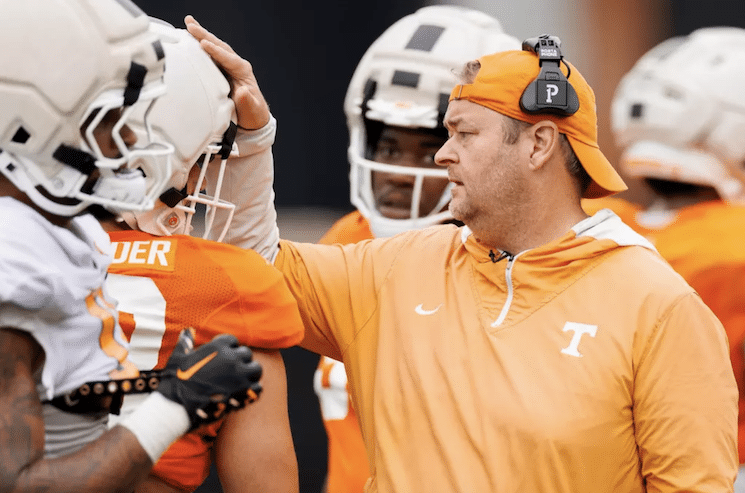
Tennessee baseball’s offense has seen the smallest dip in production over its last four SEC series. After averaging 9.7 runs per game in its first 12 SEC games, Tennessee is averaging 6.9 runs in its last 12 SEC games.
It’s still good offensive production from Tennessee’s lineup. Just not elite. There are multiple contributing factors including a schedule that’s seen them face better pitching staffs over the last month.
The most glaring reason when you look at the Vols’ dip in runs is the lack of production from the designated hitter spot. Over the last four series, Tennessee’s designated hitters are hitting three-of-38 (.079) with five walks, a hit-by pitch and a sac bunt for a .200 on-base percentage.
Simply put, the spot has become a black hole in Tennessee’s lineup.
“I think when some of these guys one through nine are just pressing to do what they have to do to help us win the game— it’s a fun lineup,” Tennessee head coach Tony Vitello said following the Vols’ 6-3 win over Queens on Tuesday night. “But it’s not a good enough lineup to have two or three spots disappear on you. I’d have to watch tape and analyze it, but I’ve kind of picked up (that) anytime that does happen … it’s usually two or three guys start out the day maybe trying to do too much or something other than just win the game and it boils into a big ball of frustration and you end up with a spot where you don’t get anything out of it.”
The good news is that the drop in offensive production hasn’t cost Tennessee in the win column. The Vols posted a 7-5 record in their first 12 conference games and a 10-2 record in the last 12 SEC games thanks a pitching staff that’s found its groove and a lineup that’s still really good.
Tennessee’s one through five remains stout and freshman shortstop Dean Curley has been a consistent offensive threat, hitting 13-of-39 (.333) with eight walks over the four series stretch.
Noticing the issue is one thing, fixing it is another. Tennessee has rotated a number of starters at designated hitter over the course of the season and over the last month.
More From RTI: Everything Tony Vitello Said After The Vols Defeated Queens On Tuesday Night
Dalton Bargo and Reese Chapman have eaten up most starts. Bargo is zero-of-18 at the plate over the stretch and Chapman is two-of-20 with three walks and a sac fly. Other options include Robin Villeneuve (zero for his last 16), Colby Backus (zero-of-three in SEC play) and Cannon Peebles (three-of-31 in SEC play).
But Bargo and Chapman are the best options to break out of the slump because they’ve had success at the plate and they’ve done in in SEC play. Bargo hit .321 with four home runs and 11 RBIs in the first 12 SEC games and Chapman hit .353 with five more walks and six RBIs.
Those two have shown they’re capable. The question is how does Tennessee get them back on track? Could more consistent at-bats help? Does Vitello want to have one designated hitter consistently or does he want to rotate?
It’s complication
“I think to go through this game is a challenge and at times frustrating but it makes you better in the long run,” Vitello said. “Now it’s easier two years ago when Trey Lipscomb is in the five slot every single day. … That’s easier and it probably makes you better to rack up wins.
“What makes you better in the long run is a little bit of a Rubik’s Cube deal where hey we’re constantly trying to figure out a few things with this team. We’ve been able to win some games. We’ve been able to have success but we have not found our best combination of really anything. … I think that’s a good thing for this team.”
Vitello says that Tennessee hasn’t reached its destination yet and that it’s a good thing. It’s easy to agree with him. Tennessee is No. 1 in the country and it feels like they can get better. The Vols can potentially win the SEC and even make the College World Series without figuring out their designated hitter conundrum.
But to win the program’s first National Championship then they have to reach the final destination and to solve the Rubik’s Cube. Perhaps the biggest thing currently standing in Tennessee’s way of reaching its final destination is the lack of production at designated hitter.



